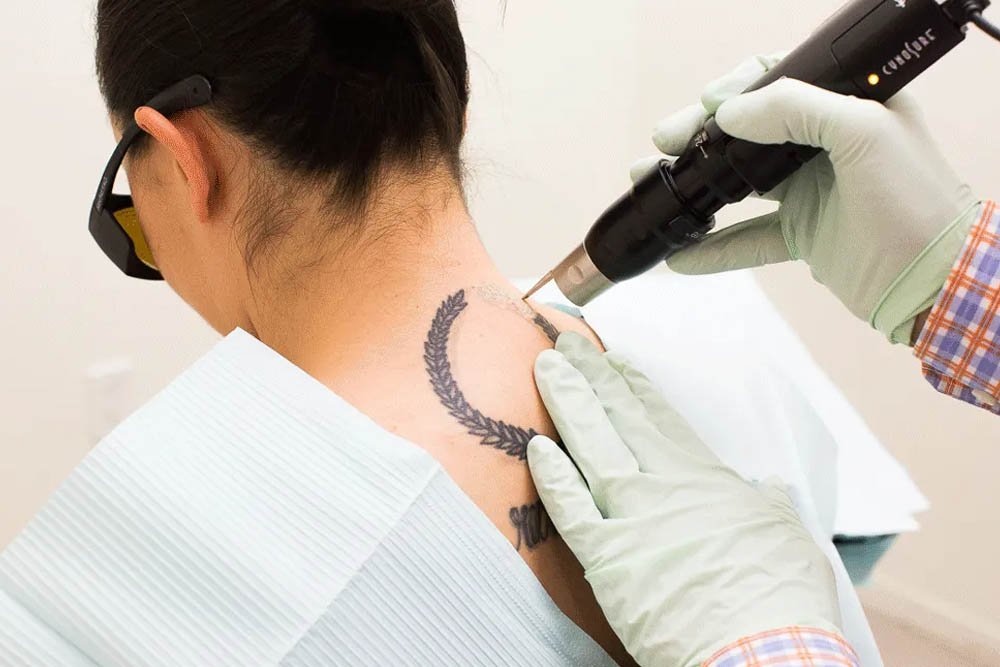Beauty standards have long been a subject of fascination and debate, shaping perceptions of attractiveness and influencing societal norms. However, in recent years, there has been a noticeable shift towards embracing diversity and challenging traditional ideals of beauty. In this article, we’ll explore how tattoo removal is playing a significant role in redefining beauty standards, offering individuals a second chance to embrace their unique selves.
Historical Perspectives on Beauty and Body Modifications
Throughout history, beauty standards have varied widely across cultures and time periods. From ancient civilizations to modern societies, ideals of beauty have been shaped by factors such as culture, religion, and social status. In many cultures, body modifications, including tattoos, have been used as a means of enhancing beauty or conveying symbolic meaning.
However, attitudes towards body modifications have not always been positive. In some societies, tattoos were associated with criminality or deviance, leading to stigmatization and marginalization of those who bore them. It wasn’t until recent decades that tattoos began to gain mainstream acceptance, thanks in part to changing attitudes and a growing appreciation for individual expression.
The Rise of Tattoo Removal
With the increasing popularity of tattoos has come a corresponding rise in tattoo regret. Whether due to changes in personal taste, career considerations, or simply a desire for a fresh start, many individuals find themselves seeking options for removing unwanted ink. Fortunately, advancements in technology have made tattoo removal safer, more effective, and more accessible than ever before.
Tattoo removal methods range from laser therapy to surgical excision, each with its own benefits and limitations. Laser therapy, in particular, has emerged as the preferred method for many individuals, thanks to its ability to break up pigment particles in the skin without causing significant damage. As a result, tattoo removal has become a viable option for individuals looking to reclaim their bodies and redefine their sense of beauty.
Tattoo Removal as a Journey of Self-Acceptance
The decision to undergo tattoo removal is often more than just a physical process—it’s a deeply personal journey of self-acceptance and empowerment. For many individuals, tattoos hold deep personal significance, representing memories, beliefs, or relationships. However, as circumstances change and perspectives evolve, some may find themselves wanting to remove tattoos that no longer align with their sense of self.
Tattoo removal offers these individuals a second chance to embrace their bodies and redefine their sense of beauty on their own terms. Through the process of tattoo removal, individuals are able to let go of the past and embrace a brighter future, free from the constraints of unwanted ink. This journey of self-acceptance is not always easy, but for many, it is a necessary step towards living authentically and embracing their true selves.
Redefining Beauty: Embracing Imperfections
In a society that often places value on perfection and conformity, tattoo removal serves as a powerful reminder that beauty comes in all shapes, sizes, and forms. By celebrating imperfections and embracing our bodies in all their diversity, we create a more inclusive and compassionate world. Tattoo removal allows individuals to reclaim ownership of their bodies and redefine their sense of beauty on their own terms, free from societal expectations or pressures.
Furthermore, tattoo removal promotes inclusivity and self-expression by allowing individuals to make choices about their bodies without fear of judgment or discrimination. By removing barriers to self-expression, tattoo removal empowers individuals to embrace their unique identities and live authentically, regardless of societal norms or standards.
Ethical Considerations and Future Outlook
As tattoo removal continues to gain popularity, it’s essential to consider the ethical implications of this practice. While tattoo removal offers individuals a second chance to embrace their bodies and redefine their sense of beauty, it’s important to recognize the cultural significance of tattoos and the potential impact of their removal on personal identity and cultural heritage.
Looking ahead, the future of tattoo removal holds exciting possibilities for innovation and progress. From advancements in technology to changes in societal attitudes, the landscape of tattoo removal is constantly evolving. However, it’s essential that we approach this practice with sensitivity and respect for its cultural and personal significance.
Conclusion
In conclusion, tattoo removal is playing a significant role in redefining beauty standards and promoting self-acceptance and empowerment. By offering individuals a second chance to embrace their bodies and redefine their sense of beauty on their own terms, tattoo removal is helping to create a more inclusive and compassionate world. As attitudes towards beauty continue to evolve, tattoo removal serves as a powerful reminder that true beauty lies in embracing our unique selves and celebrating the diversity of the human experience.







